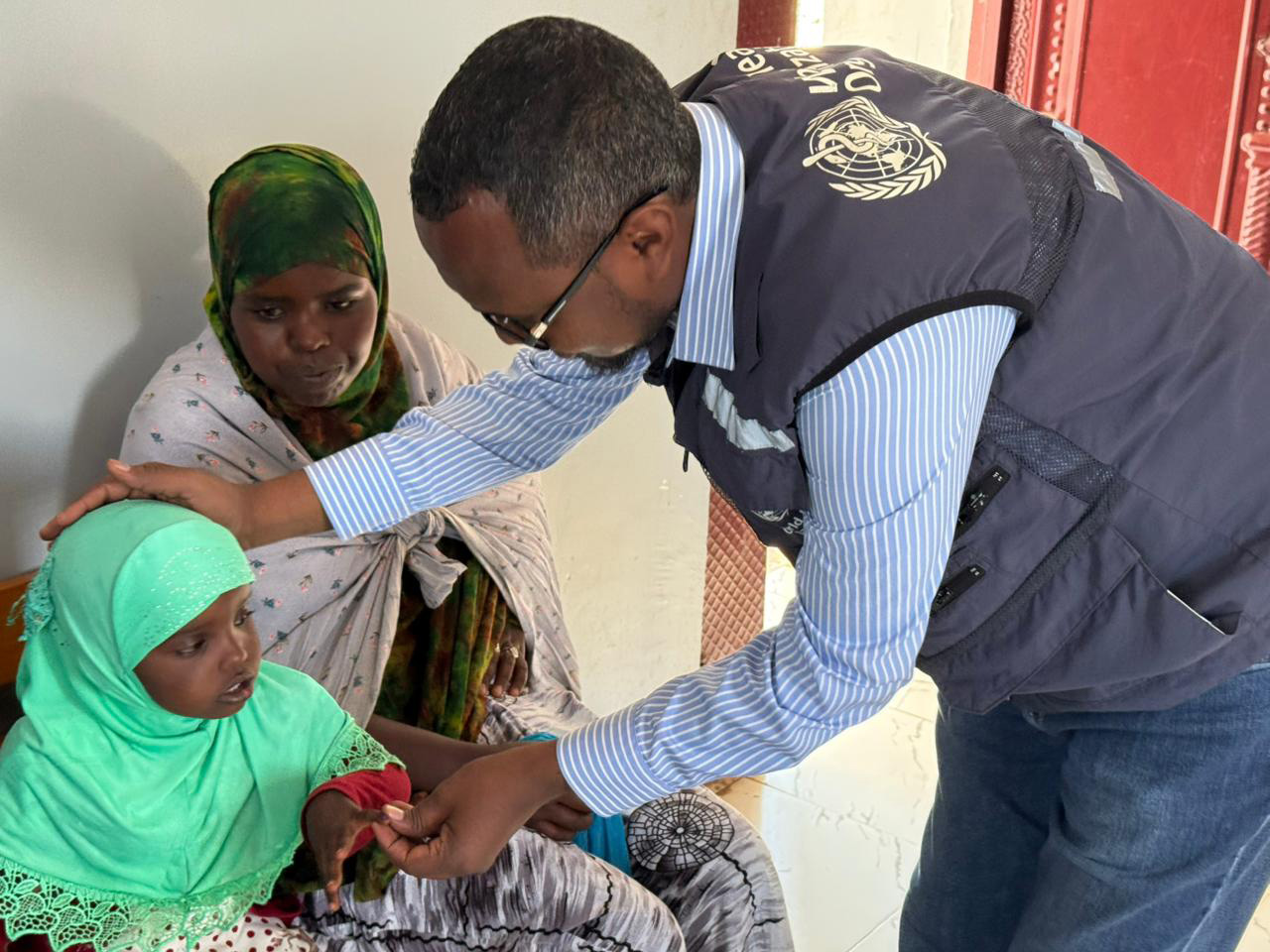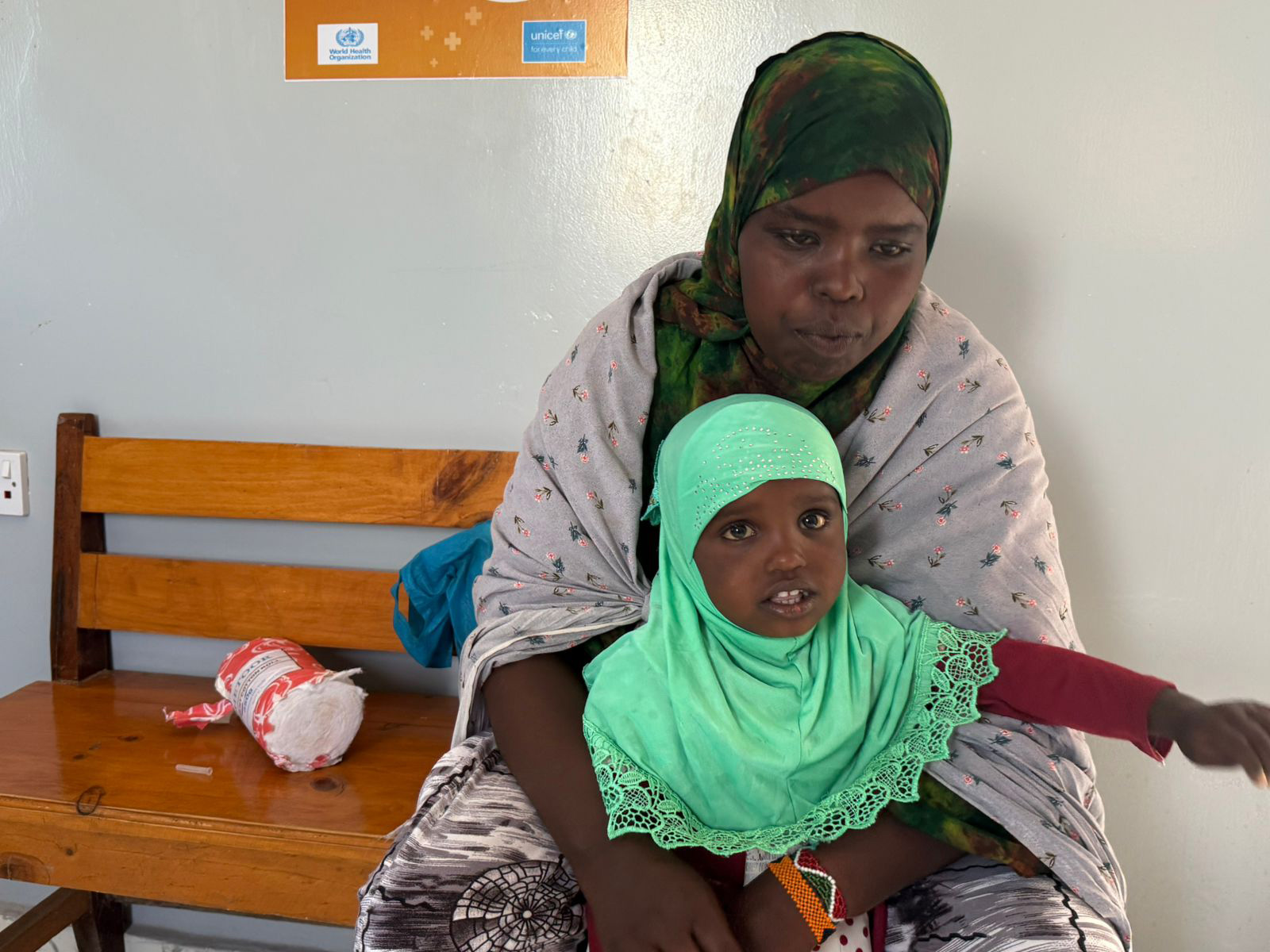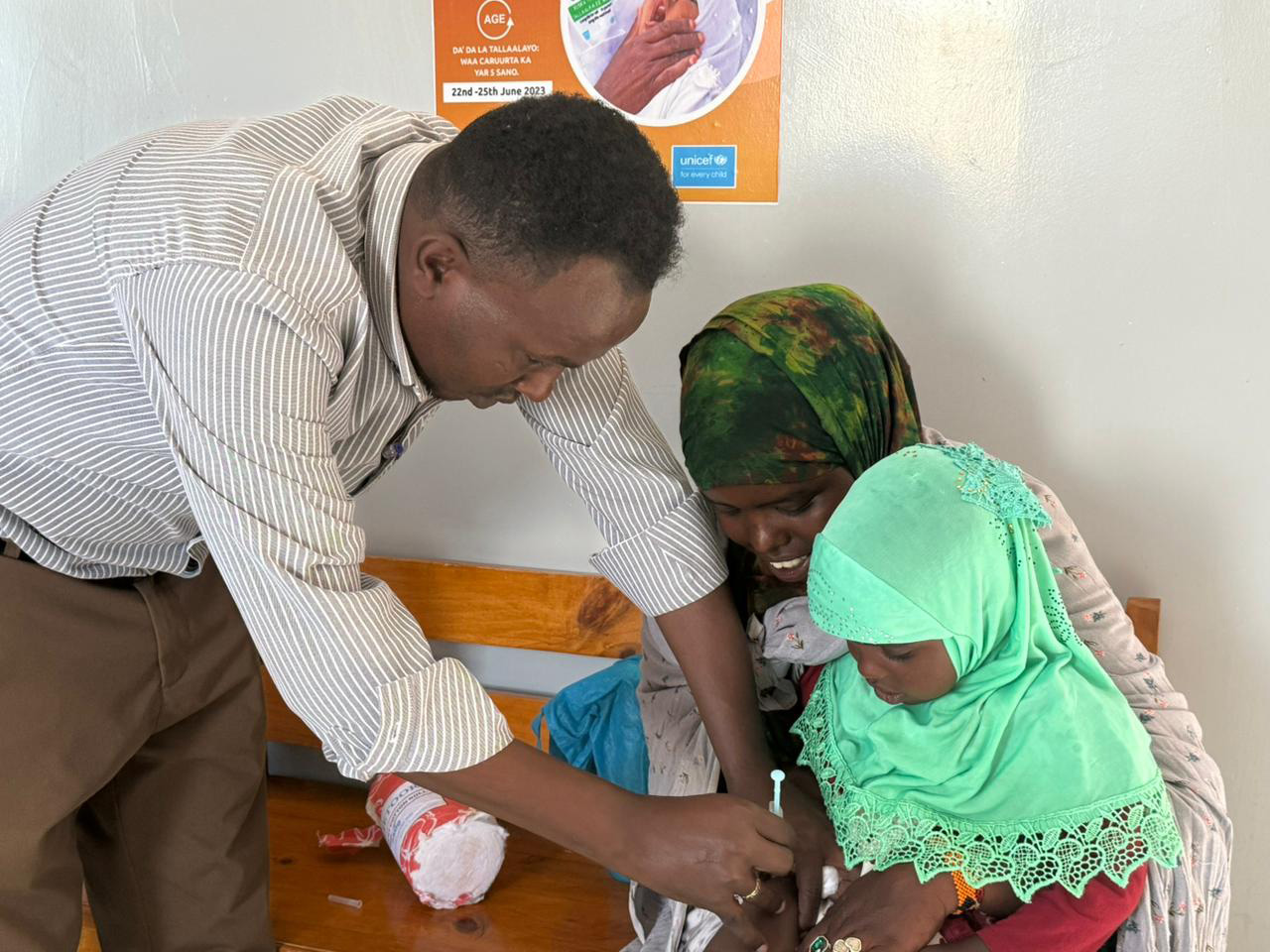 Dr. Husein Mohamed Abdi examines Masna’s finger mark after she received the necessary vaccines at the Maternal and Child Health (MCH) centre in Toon, near Hargeisa, Somalia. Photo credit: WHO, Khadar Hared30 October 2025, Mogadishu, Somalia – On the morning of 27 August 2025, the fourth day of nationwide efforts to deliver the new oral polio vaccine type 2 (nOPV2), health supervisors from WHO Somalia visited Toon, a small village about 20 km southeast of Hargeisa in Somaliland.
Dr. Husein Mohamed Abdi examines Masna’s finger mark after she received the necessary vaccines at the Maternal and Child Health (MCH) centre in Toon, near Hargeisa, Somalia. Photo credit: WHO, Khadar Hared30 October 2025, Mogadishu, Somalia – On the morning of 27 August 2025, the fourth day of nationwide efforts to deliver the new oral polio vaccine type 2 (nOPV2), health supervisors from WHO Somalia visited Toon, a small village about 20 km southeast of Hargeisa in Somaliland.
At the local maternal and child health centre in the village, the team met 25-year-old Somali mother Hamda Awil Jama and her three-and-a-half-year-old daughter Masna Abdirizak. To their surprise, Hamda revealed that Masna had never received a single routine childhood vaccine.
“I thought I was just bringing Masna for a nutrition check,” recalls Hamda Awil Jama. “But then my daughter received her very first vaccines.”
Hamda explains how the situation arose. “After moving to the village of Jibase I went to the maternal and child health centre in Toon village, 7 km away, to have my daughter checked for nutrition. Before we moved to the village, we were pastoralists and farmers living deep in the Hawd area. I gave birth to my daughter Masna in a place where we had no knowledge of immunization and no access to health services.”
The Hawd area is a stretch of remote bushland along Somalia’s border with Ethiopia. Like many children from pastoralist families who are constantly on the move, searching for grazing and water, Masna had missed all her vaccines.
 Hamda Awil Jama cradles her daughter, Masna, as they wait for her turn to receive the vaccine at the Maternal and Child Health (MCH) center in Toon village. Photo credit: WHO, Khadar HaredHamda and her daughter had walked to Toon village. When they arrived at the centre, team members asked about Masna’s vaccination status. When it became clear the three-and-a-half-year-old was a zero-dose child, the health workers explained to Hamda how vaccines protect children from deadly diseases, especially during the first 5 years of life, and why completing all doses is crucial.
Hamda Awil Jama cradles her daughter, Masna, as they wait for her turn to receive the vaccine at the Maternal and Child Health (MCH) center in Toon village. Photo credit: WHO, Khadar HaredHamda and her daughter had walked to Toon village. When they arrived at the centre, team members asked about Masna’s vaccination status. When it became clear the three-and-a-half-year-old was a zero-dose child, the health workers explained to Hamda how vaccines protect children from deadly diseases, especially during the first 5 years of life, and why completing all doses is crucial.
Masna then received her first essential vaccines. “And now she is doing well,” says her mother. “I have seen no problems with the vaccines – only hope for my daughter’s life and future.”
After Masna received her first doses of oral polio vaccine, pentavalent vaccine, inactivated polio vaccine and measles-containing vaccine, Hamda felt both relief and a determination to ensure that Masna never again missed out on a lifesaving opportunity.
"Now I understand the importance of vaccines and how they protect my child I have been sharing my knowledge with mothers in similar situations. Even though I come from a rural area, I will make sure Masna never misses a vaccine again," said Hamda.
 A health worker at the MCH administers vaccines to Masna, a three-year-old receiving immunizations for the first time since birth. Photo credit: WHO, Khadar HaredWhile reaching children in Somalia’s remote communities with vaccines is challenging, Hamda and Masna’s story reveals a simple truth – that every conversation with a parent helps ensure a child grows up healthy and protected.
A health worker at the MCH administers vaccines to Masna, a three-year-old receiving immunizations for the first time since birth. Photo credit: WHO, Khadar HaredWhile reaching children in Somalia’s remote communities with vaccines is challenging, Hamda and Masna’s story reveals a simple truth – that every conversation with a parent helps ensure a child grows up healthy and protected.
For more information, please contact:
Khadar Hared, Communication Officer, WHO Somalia
Tel: +252619800011
Email:








